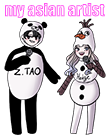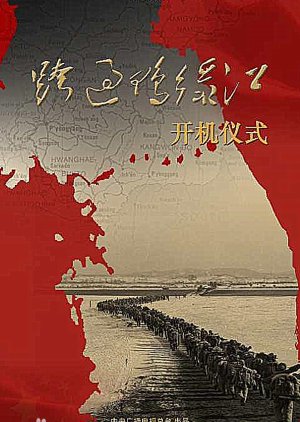Joe said that since the Kaesong negotiation has been neutralized, the military forces in Kaesong will be redeployed. North Korea agreed to the other party’s proposal and proposed that the 38th parallel should remain the demarcation line for the armistice. If the North Korean issue is to be regionalized, the United States must withdraw its troops. Joe said that the United States agreed to reduce the nine proposals to four, but completely opposed the delineation of the 38th line and the withdrawal of foreign troops, and even claimed that this was their bottom line.
Either long-term split or unification by force. Zhou Enlai analyzed that this was Truman's policy. His negotiations with the Chinese side were simply forced. If the US military continues to persist in this way, negotiations will fall into an endless loop. Mao Zedong pointed out that the 38th line can be omitted in writing, but foreign troops must withdraw from the Korean Peninsula. The representative of the DPRK insisted that foreign troops withdraw from the Korean Peninsula. This is the only condition to guarantee peace on the Korean Peninsula. Joey tried to use China to send troops to talk about the matter, but was rejected by the North Korean representative with reasonable grounds, and pointed out that the United States was the chief culprit in disrupting the peace talks.
The negotiations reached a deadlock. Li Kenong proposed to the central government that the issue of troop withdrawal should be held in the post-armistic meeting for discussion, and he proposed to rest for three days to ensure the smooth progress of the negotiations. Mao Zedong was very dissatisfied with the U.S. attitude of only talking about truce and not about withdrawal. Zhou Enlai believed that this was because we had been making concessions to some of the U.S. proposals that gave the U.S. the illusion that it could do whatever it wanted. Mao Zedong proposed that Li Kenong should not fall into the other party's negotiation routine. Zhou Enlai pointed out that agreeing to his proposal to adjourn the meeting for three days can avoid the interpretation of the negotiation on the one hand, and on the other hand, it can also have time to discuss with the North Korean side.
Li Qiwei made it clear that Joe would never agree to withdraw his troops, and that the blame for the breakdown of negotiations should be transferred to North Korea and China. The North Korean side has no patience for the US's refusal to withdraw its troops, and clearly pointed out that if the truce is not a withdrawal, it means that the US military is going to travel on the Korean Peninsula. So far, the negotiating meeting has entered a three-day break. North Korea and the Soviet Union believed that the top priority was to negotiate a truce on the 38th parallel. Mao Zedong knew that not withdrawing troops was just an excuse for the US military to take the opportunity to rest and avoid damage. However, if the negotiations are resolved, then the war will not end.
The Chinese side agreed to temporarily shelve the conditions for the withdrawal of foreign troops. This was beyond the expectation of the US representative and the meeting was suspended on the spot. In the telegram sent back by Li Kenong, it was clearly stated that the United States was delaying negotiations to conclude a garrison treaty with Japan. Under such circumstances, they would never want to sign an armistice agreement. Mao Zedong was worried that this move by the United States might launch another battle. They just forgot the scars after taking a break, and if they wanted to talk, they would fight or fight. He told Mr. Peng to tighten his nerves and always pay attention to the movements of the US military.
Li Qiwei asked Van Fleet to come to Japan to inquire about the status of the frontline forces. The US military has always been in a state of first-level combat readiness. Although Li Qiwei himself does not want to carry out any more, they must continue to conduct small-scale battles in order to remind the Chinese US military of the strength of the Chinese US military. At the same time, if you want to continue, you must let China take the initiative to withdraw from the negotiations. Van Fleet claimed that he heard some wind from South Korea, and something interesting might happen in Kaesong.
The Chinese sergeant police patrolled at night, but they were beaten by a group of South Korean militants. Soldier Yao Qingxiang was shot dead. Deng Hua condemned the despicable behavior of the United States and South Korea and demanded that they must hand over the murderer. Joee shamelessly stated that the attacker was attacked by unidentified militants. Xie Fang argued that these militants entered and left the US defense zone. It is clear who the murderer was. The negotiations were suspended again. Yao Qingxiang, who was shot to death, did not violate Li Kenong's instructions. He was a true hero. "Everyone knows Li Qiwei, and the whole country mourns Yao Qingxiang." Li Kenong wants to hold a memorial service and he wants reporters to tell the world the truth. The provocative actions of the U.S. imperialism are intended to make the Chinese side bear the responsibility for the breakdown of the negotiations, but they must not allow the U.S. imperialism to disrupt the rhythm of the Chinese side. They must wait until the U.S. reveals itself and obtains evidence to fight back.
The United States blatantly sent planes to bomb the residence of the Chinese and North Korean delegations. Thanks to Mao Zedong’s advance instructions to the negotiators, they were not injured. The shrapnel from the U.S. bomb has been collected, and the U.S. will be bankrupt in public opinion all over the world this time. Mao Zedong immediately ordered the negotiations to be shelved and the military struggle resumed. President Peng ordered Deng Hua to issue a statement immediately, and Li Qiwei angrily threw away the documents in his hand after listening to the various evidences retained by the Chinese side and the words that were forced to stop negotiations. He claimed that there is no victory by mouth, and victory can only be won by airplanes and cannons.
U.S. aircraft and tanks began to bombard indiscriminately again, and they attacked the positions of the Korean People's Army with three divisions. Looking at the super-saturated bombing by the US army, President Peng felt very unbearable when he remembered how the 68th Army had withdrawn from Cheorwon. President Peng should change his strategy and don't blindly attack, as long as he can bring the US imperialism back to the negotiating table, this battle is a victory. The fighters on the front line also had many ways to deal with the US imperial aircraft and tanks. President Peng ordered Xie Fang to collect good combat methods and promote them to the entire army.
Chen Geng is about to arrive in North Korea. Deng Hua respects Chen Geng and proposes that Chen Geng should be the first commander of the volunteer army. President Peng smiled and told him that the Central Committee had its own arrangements, so that he would continue to serve as a certain consideration. The U.S. emperor is afraid of long-term wars and long-term peace. Mao Zedong proposed to step up preparations for the sixth battle and bring the U.S. emperor back to the negotiating table. This is where the decision is made.
The front line was launched again. Thanks to Yan Zhigang's order in advance to dig out a solid anti-cannon hole, the U.S. Army bombarded indiscriminately outside, and the soldiers stayed in the hole to sleep and recharged while listening to the sound of the artillery. Until the sound of the explosion became smaller, Yan Zhi led the soldiers to rush out to confront the U.S. Army. Faced with a fierce counterattack, the U.S. Army had to retreat again. Looking at the retreating U.S. troops, Yan Zhigang ordered the soldiers to continue digging. The company commander personally came to the front and looked at the underground blastholes. This method is a good way to avoid casualties.
Chen Geng came to the North Korean headquarters from the Vietnam battlefield. Right now, both China and the United States understand that no one can swallow each other in one bite. Now the two sides are starting positional warfare with the 38th line as the boundary. This is not a good tactic for the volunteers. Yan Zhigang, the deputy company commander of the 571 Regiment of the 191st Division, took more than 90 people to withstand one day and one night, using the original anti-cannon fortifications to kill more than 500 enemies, and only injured 25 people on his side. This can make Mr. Peng and Deng Hua very sigh. Chen Geng proposed to see this anti-cannon hole in person. Facing some fighters' doubt that this method was not completely safe, Chen Geng suggested that as long as the hole was dug deep and strong enough, it would be able to withstand the enemy's shelling. It was pointed out that the combination of trench warfare and tunnel warfare would be a magic weapon in the Korean battlefield. President Peng happily asked the resourceful Chen Geng to quickly sum up a set of combat methods to reduce the huge casualties of the volunteers.
Li Kenong told the negotiating team that backlash in the United States has become the norm, and talks will definitely become a long-term state. He proposed that negotiators should be ready at any time, and both fists in war and negotiations must be tough.

